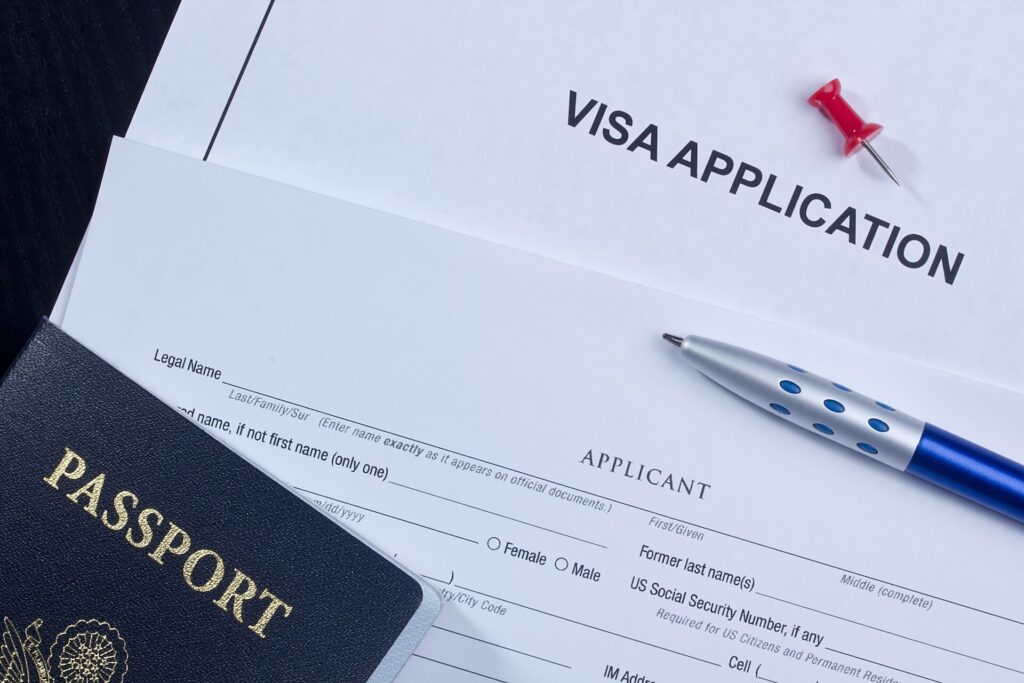More than 8.5 million Americans are currently living abroad, but before they got a chance to relocate, they also had to learn how to move to another country. Unfortunately for them, they didn’t have this amazing guide to help them make a successful transition. All you have to do, on the other hand, is go through it, memorize our tips and prepare for ultimate success.
To relocate to another country permanently, you have to obtain documents like a visa and passport. However, that’s only a legal level of relocation preparations. You must also get your finances in order, save up quite a bit and look for the prime company to help you move. Learning the local language, laws, and customs, and making friends, on the other hand, will help you adapt to another culture fast. Additionally, be sure you find as many relocation tips as possible to secure the success of the move.
Is It Difficult to Move to Another Country?
International moves are a lot more challenging than local or even interstate ones. The logistics of moving overseas are much more complicated, but that is not all. Remember that you’ll have to start over in a foreign place surrounded by an unfamiliar culture (and possibly language), separated from your loved ones. It can get even harder if you’re relocating for the first time. So why do people decide to go through with it? The answer is obvious – relocation benefits simply outweigh the moving stress.
The Easiest Way of Moving to Another Country Is Hiring International Movers
Although you’ll be on your own when the time to adjust to a new country comes, you can seek professional assistance for other parts of the relocation process. If your goal is to move efficiently, as it should be, one of the best ways of doing so is to hire the most trustworthy international mover. While you could complete interstate and local moves all by yourself, relocating overseas without getting international moving services is almost impossible – that is, unless you plan to travel only with your backpack and nothing else.
However, one of the common relocation mistakes is going for the first company that offers an acceptable price. In order to avoid relocation scams as well as other minor and major inconveniences, make sure the company you choose is reputable and reliable, with many successfully completed international moves.

Choose Your Dream Destination and Learn About It
Sure, all the work concerning the move may seem daunting at first, but there is no denying that living in a foreign city is exciting, especially if you have the freedom to choose where to live. Sometimes your reasons to move will allow you to pick between the best countries to live in, while, at other times, they will predetermine your future destination. Whether the future home has yet to be determined or you know exactly where you are heading, be sure you do proper research on:
- Cost of living,
- Laws,
- Official language and currency,
- Banking system,
- Job market,
- Education,
- Healthcare,
- Safety,
- Climate,
- Culture.
Of course, keep in mind that no place will suit you completely, so you must create a list of priorities. If you’re relocating overseas for the education opportunities, you’ll look for countries with the top-ranked universities. If you’re relocating with kids, you’ll have to explore the safest places with top healthcare programs and schools.
On the other hand, people looking for affordability will look at housing expenses, utility prices, and so on. Still, remember that all of the elements above should be considered when you plan on relocating permanently.
Start Organizing the Move – And Try to Think of Every Detail
After you have made up your mind about your future home, it’s time to start with all the required preparations. Some of the following relocation tips may come quite handy once you start planning:
- Set a timetable for each task – The best way to start is to make a relocation to-do list. The more organized you are, the less anxiety you will feel.
- Calculate a relocation budget – This should be on top of the list, as the money at your disposal will often dictate how the move will look and what types of professional help you can get.
- Start decluttering as soon as possible – An overseas relocation is expensive, so bring only relocation essentials. Everything that can be bought and replaced after the move shouldn’t be a part of your international cargo. Also, remember to research which items movers won’t move.
- Decide how you want to move your belongings – Choose to move by sea if you’re looking for a more affordable option, or move by air if you need your belongings delivered promptly.
- Get as much professional help as you can – If you want a smooth and successful move, booking packing services, as well as professional overseas vehicle shipping, will save you a lot of time and energy.
- Unlock your phone – You’ll need a new SIM card immediately after the travel, so be sure you can use it with your current phone.
- Get an International driving permit – In many countries, you’ll be able to drive with it for at least a few months after the move.
- Change your address – When it comes to the international move, note that you must file a change of address in person at your local postal office. Simultaneously, don’t forget that financial institutions, services providers, and other subjects must be notified about the move as well.
How Can I Legally Move to Another Country? Tackle the Necessary Documentation on Time
As soon as you realize where you want to move overseas, you must learn about the documents needed to travel abroad. A valid visa and passport are required for most foreign countries, especially when you plan on staying for an extended period.
Passports must be valid for at least six months upon arrival – but renewing the passport is possible even in a foreign city. Obtaining a visa is much more nerve-wracking since you can actually be denied, and then you can kiss the move goodbye. To ensure your application ends up with approval, research different types of visas, apply only for those you are eligible for and provide all the supporting documents required. The application process can take months, so be sure you start with it promptly.
Other important documents, like marriage certificates, school, medical and vet records, and tax forms, must also be gathered before the move. Moreover, it would be wise to have a copy of all essential documents – just in case.

Find Out How to Get Permanent Residency in the Chosen Place
In order to move somewhere for good, you have to know the country’s requirements for becoming a permanent resident and, later on, even a citizen. Residency requirements differ from one place to another, so be sure you contact the country’s embassy for further information.
On the other hand, obtaining legal citizenship is much more difficult, but once you get it, you’ll have all the equal rights as people born there. However, keep in mind that in many cases, you’ll need to know the official language fluently and pass in-person and written citizenship tests.
Learn the New Language and Customs
If you plan on living in a foreign place in many years to come, it would be best to start learning their language and customs as soon as possible – even before you move abroad. It’s never too early to find some tips for learning a new language and get to work! It will help you in day-to-day communication with locals but also speed up the adjustment process by introducing you to another culture and helping you understand it better.
Culture shock is a phenomenon every expat experiences after relocating from their homeland. After moving internationally, you’ll suddenly find yourself surrounded by an environment much different from what you’re used to. Mixed emotions, like panic and excitement, fear and thrill, are expected. However, the sooner you start adapting to a different culture and environment, the sooner negative emotions like loneliness and homesickness will weaken or maybe even go away entirely.
Can You Move to a Country Without a Job?
How can I leave the country without a job – it is a question many feature expats ask. It is certainly possible but can bring a little more complications. Obtaining a work visa, for example, often demands a previously secured work position.
However, if you want to move across the world permanently, you are free to choose some other visa type – just remember that working while on a travel one is, in many countries, illegal. The smart solution would be to become a digital nomad and continue with your work regularly – just a million miles away from an old home.
Make New Friends, but Ensure You Keep in Touch with the Old Ones
Relocating overseas is challenging on its own, but having to move abroad alone is as hard as it can get. How to move to another country and start over all by yourself? The answer is – you don’t. You’ll need a support network wherever you are, and with your loved ones several time zones apart, it’s only understandable that they won’t be available for you constantly.
Making friends will help you acclimate to a different environment much faster but also conquer the feeling of loneliness. Simultaneously, remember your move doesn’t mean that all your relationships are doomed – modern technology makes it possible for you to be in touch with friends and family as often as you want to.
If you lack experience in meeting people (as a grown-up) and your social skills need little brushing up, don’t miss watching the video below:
Check Local Expat Communities
Expat communities are a great way of getting in touch with people who have already moved and can provide you with excellent advice for living in a foreign city. Use social media, forums, or websites like Internations to connect with other American expats in the chosen city. Learning from their experience can help you avoid many difficulties they’ve met down the road and adjust to the surroundings even sooner.

How to Move to Another Country – FAQ
Countries that are easy to move to all have pretty straightforward and clear immigration policies and programs, as well as many visa options to choose from. New Zealand, Australia, Portugal, Spain, and Germany all have some of the best immigration policies and are known for welcoming newcomers.
Although relocating with no money is extremely hard with an international move, it can be done. However, most of your belongings must be left behind, and you’ll have to find a way to financially support yourself immediately after the move or become a digital nomad who can work from all around the globe. However, you’ll still have to provide the money necessary for the travel itself.
The answer to this question is not simple because the choice is highly individual. Scandinavian countries offer excellent quality of life, but they miss the tropical heaven relocation to the Bahamas can bring. Canada is among world leaders when it comes to equality, but it does come with the high cost of living. Therefore, once you set your priorities straight, you can explore the best places to live abroad.
Costs of relocating internationally depend on many different factors – services you are going to take, area, city, or even the neighborhood you choose as your future home, visa costs, items you decide to bring overseas, and so on. Expenses can go anywhere between $1,500 to $12,000.
you and living expenses in another city. The rule of thumb is that you need to have at least six months’ worth of savings if you plan to move abroad. Add to the relocation costs mentioned in the previous section, and the ideal sum comes to around $20,000.
When the Time Comes, Make Sure You Get the Help from a Top-Notch International Moving Company
Relocation is considered one of the most stressful periods in a person’s life, and that’s especially true when you plan to move internationally. However, this guide should have provided you with a base on which you can start planning your relocation and life overseas. Just don’t forget – if you want the ultimate relocation experience, seek the finest international movers, and secure a move without (much) fuss.
